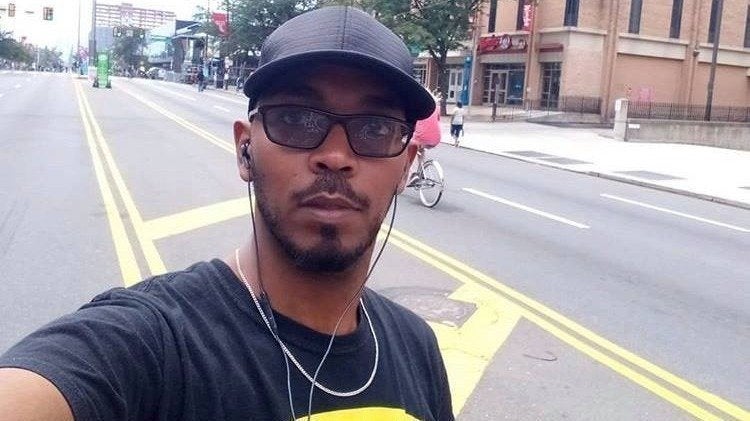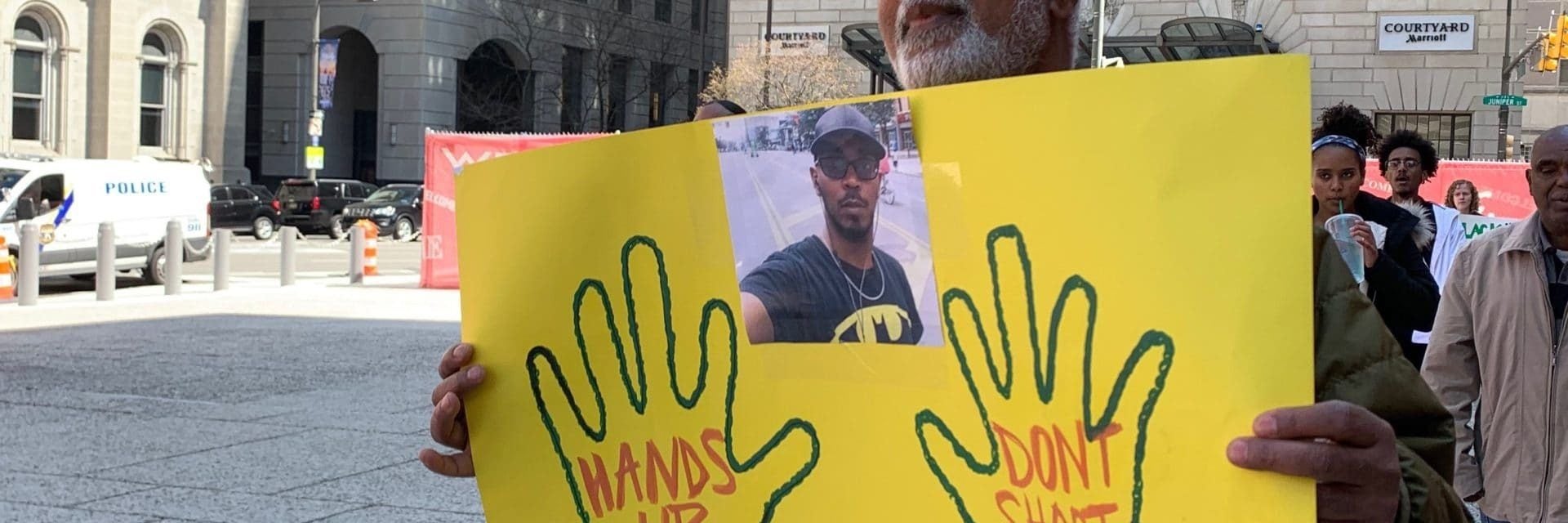Kelab Belay, 25, was on his way to work Wednesday, March 6 when he was confronted by officers outside his home. According to a news release by the Philadelphia Police Department, officers were responding to a radio call for a “person with a weapon/reporting of a stabbing.” Per their account, officers arrived to find Belay emerging from behind a large bush wielding a steak knife. He advanced towards officers and refused to drop his weapon. Officer Kevin Pfeifer and his unnamed partner pulled out their handguns and eventually fired multiple times, hitting Belay in the chest.
“He told me it was probably the most excruciating pain he had ever experienced,” Simon Haileab, Belay’s attorney, told ESSENCE. “I still don’t know how he’s still alive.” According to Haileab, Belay was struck six times.
His pancreas was removed and his spleen is significantly damaged. He had a collapsed left lung, a broken right hand and potential loss of sensation in his left hand. Belay was recently transferred to impatient care after spending three weeks in the ICU.
While in medical care, Belay was charged with aggravated assault, simple assault and possessing an instrument of crime.
Belay immigrated to the United States just 10 months ago. New to the Philadelphia area, he only had relatives in Virginia. He was enrolled in graduate finance and risk management courses at Temple University. He discontinued his studies in spring following the death of his father in Ethiopia.

“He’s never had any experience before with law enforcement. He’s always been a student,” Haileab said. “He was even in medical school in Ethiopia at one point. Education was always the cornerstone of his foundation.”
Belay’s employer, Saba Tedla, owner of Booker’s Restaurant & Bar, echoed his commitment to his work.
“He was always punctual, credible, reliable,” Tedla said. “He was an introvert; someone you’d never think to raise his voice.”
As Belay slowly recovers, so does the Ethiopian community.
Philadelphia is home to over 50,000 African and Caribbean immigrants from 35 countries, according to Stanley Straughter, Chairman of the African and Caribbean Business Council of Greater Philadelphia.
“The level of abuse directed at Black youth is a challenge for all of us, but within the Ethiopian community, there’s little struggle and difficulties,” Straughter told ESSENCE. “We rarely have problems from their community so to see that this has happened is difficult. [Belay] doesn’t seem to have provoked police. He was a mild-manner young man.”

Belay and his family are primarily focused on: 1) disposing of Belay’s criminal charges in a manner that doesn’t impact his education, employment and immigration status, and 2) promoting a positive change in law enforcement and the way minority communities are charged, treated and handled.
According to a report released by the Black Alliance for Just Immigration (BAJI) and NYU Law School’s Immigrant Rights Clinic, black immigrants make up 7% of the U.S. immigrant population, but comprise of 21% of those facing deportation as a result of contact with the criminal justice system.
Another issue his attorney is investigating is the police officer’s use of force and lack of proper equipment.
“From what I’ve been told, [Officer Pfeifer] did not have a taser or any other non-lethal device on his person. There are serious questions surrounding lack of non-lethal mechanisms that led him to having no other alternative,” Haileab said.
The Philadelphia District Attorney’s Office reviews all police shootings and an investigation is underway. The Philadelphia Police Department Office of Media Relations declined answering any questions pertaining to Belay’s shooting as the investigation is ongoing.
In the meantime, local officials and community members are providing an outpouring of support. Most recently, Philadelphia Councilwoman Jannie Blackwell wrote a letter to immigration authorities asking for Belay’s immigration visa to be extended. She’s also working on helping bring Belay’s mother from Ethiopia to be with Belay in Philadelphia. Blackwell and others like Chairman Straughter will continue to fight against injustices on behalf of all black communities.
“[Policing] is an epidemic across the country,” Straughter said. “We want to get to a point where police will stop shooting Black men.”
When Ethiopian and Eritrean community members aren’t organizing a fundraiser or rally on Belay’s behalf, they’re learning the best way to process this news. Haileab shared that being catapulted into this incident has been a learning lesson for the immigrant community.
“There is no difference between immigrant and non-immigrant,” Haileab said. “You’re Black and you’re Black and you’re Black. So long as our skin is the way it is, there is no difference. We are still a target.”
If you want to support the Justice For Kaleb initiative and help with any of Belay’s medical and legal expenses, you can visit his GoFundMe.
